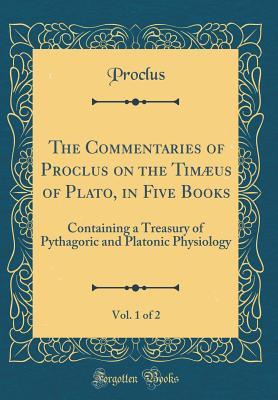
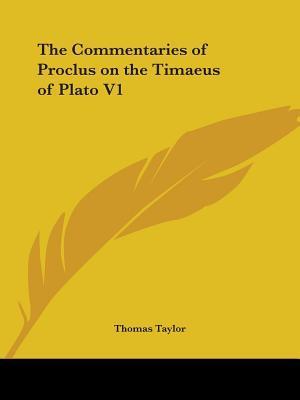
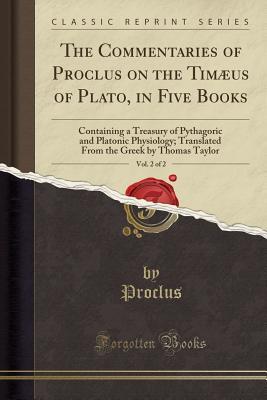
The Commentaries of Proclus on the Timaeus of Plato in Five Books
Series · 5 books · 1993-2018
By Proclus, Thomas Taylor
Books in series

#1
The Commentaries of Proclus on the Timæus of Plato, in Five Books, Vol. 1 of 2
Containing a Treasury of Pythagoric and Platonic Physiology
2018
This book introduces readers to the profound philosophical system created by Proclus, arguably the greatest of the later Neoplatonists. Proclus' thought is situated at the culmination of the Platonic tradition, drawing on the ideas of Plato, Aristotle, and other ancient philosophers to construct a unified and comprehensive worldview. The book explores the central themes of Proclus' philosophy, including his theory of emanation, his understanding of the soul and its journey, and his vision of the ultimate goal of human union with the divine. Through a detailed analysis of Proclus' major works, the book provides a comprehensive overview of his thought and its significance for the history of philosophy.

#1
The Commentaries of Proclus on the Timaeus of Plato, Vol. 1
On the Socratic State and Atlantis
1993
This scarce antiquarian book is a facsimile reprint of the original. Due to its age, it may contain imperfections such as marks, notations, marginalia and flawed pages. Because we believe this work is culturally important, we have made it available as part of our commitment for protecting, preserving, and promoting the world's literature in affordable, high quality, modern editions that are true to the original work.

#2
The Commentaries of Proclus on the Timæus of Plato, in Five Books, Vol. 2 of 2
Containing a Treasury of Pythagoric and Platonic Physiology; Translated From the Greek by Thomas Taylor (Classic Reprin
2018
Excerpt from The Commentaries of Proclus on the Timæus of Plato, in Five Books, Vol. 2 of 2: Containing a Treasury of Pythagoric and Platonic Physiology; Translated From the Greek by Thomas Taylor
Our preceptor however, interprets the middle in a way more accommodated to the words of Plato. For since the soul of the universe has indeed that which is supermundane, and exempt from the universe, according to which it is con joined to intellect, which Pluto in the l'lraedrus, and Orpheus in what he says about Ilippa, denominate the head of the soul; and since it has also another multitude of powers, proceeding from this monad, divided about the world, and appropriately present to all the parts of the universe, in one way indeed about the middle, in another about the earth, in another about the sun, and in another about each of the spheres; this beingthe case, he says that the present words indicate all these, so that soul animates the middle in one way, but the whole bulk in another, and leaves something else prior to these powers, exempt from the universe. In order however, that we may not negligently attend to what is said by Plato, but may exhibit the variety of the psychical powers, thus much must be said, that soul much prior to body, is a vital world, and is both one and number. And through the one indeed, it is superior to every habitude of form; but through multitude, it governs the difl'crent parts of the universe. For by its guardian powers, it contains the centre; since the wile/c sphere is governed from t/rcnce, and con verges to it. Besides, every thing turbulent in the world, is collected about the middle, and requires a divine guard, capable q/ arranging, and detaining it in its proper bonus darics. Hence also, t/rco/ogists terminate the of the \[rig/rest Gods, in that place; and the Pythagorcuns call the middle the tower of Jupiter, and the guard-\[rouse ry'
About the Publisher
Forgotten Books publishes hundreds of thousands of rare and classic books. Find more at www.forgottenbooks.com
This book is a reproduction of an important historical work. Forgotten Books uses state-of-the-art technology to digitally reconstruct the work, preserving the original format whilst repairing imperfections present in the aged copy. In rare cases, an imperfection in the original, such as a blemish or missing page, may be replicated in our edition. We do, however, repair the vast majority of imperfections successfully; any imperfections that remain are intentionally left to preserve the state of such historical works.
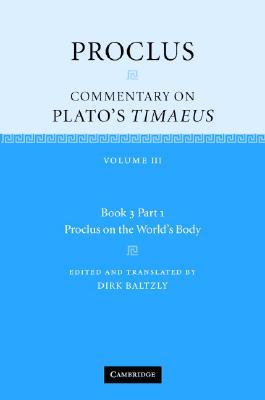
#3
Commentary on Plato's Timaeus, Vol. 3
On the World's Body
2007
Proclus' Commentary on Plato's dialogue Timaeus is arguably the most important commentary on a text of Plato, offering unparalleled insights into eight centuries of Platonic interpretation. This 2007 edition offered the first new English translation of the work for nearly two centuries, building on significant advances in scholarship on Neoplatonic commentators. It provides an invaluable record of early interpretations of Plato's dialogue, while also presenting Proclus' own views on the meaning and significance of Platonic philosophy. The present volume, the third in the edition, offers a substantial introduction and notes designed to help readers unfamiliar with this author. It presents Proclus' version of Plato's account of the elements and the mathematical proportions which bind together the body of the world.
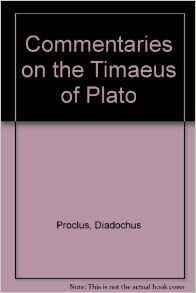
#6
Proclus
Commentary on the Timaeus of Plato: Containing a Treasury of Pythagoric and Platonic Physiology [two volumes in one]
2013
This work has been selected by scholars as being culturally important, and is part of the knowledge base of civilization as we know it. This work was reproduced from the original artifact, and remains as true to the original work as possible. Therefore, you will see the original copyright references, library stamps (as most of these works have been housed in our most important libraries around the world), and other notations in the work.
This work is in the public domain in the United States of America, and possibly other nations. Within the United States, you may freely copy and distribute this work, as no entity (individual or corporate) has a copyright on the body of the work.
As a reproduction of a historical artifact, this work may contain missing or blurred pages, poor pictures, errant marks, etc. Scholars believe, and we concur, that this work is important enough to be preserved, reproduced, and made generally available to the public. We appreciate your support of the preservation process, and thank you for being an important part of keeping this knowledge alive and relevant.
Authors
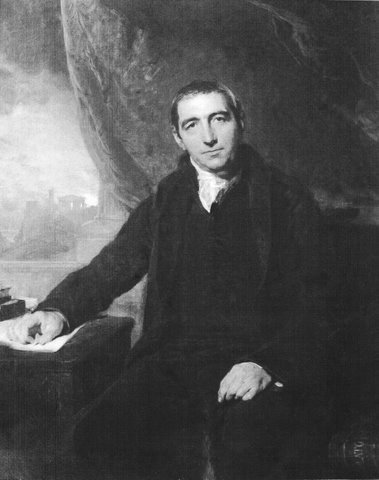
Thomas Taylor
Author · 10 books
Librarian Note: There is more than one author with this name in the Goodreads database Thomas Taylor was an English translator and Neoplatonist, the first to translate into English the complete works of Aristotle and of Plato, as well as the Orphic fragments. He published prolifically for over 50 years.